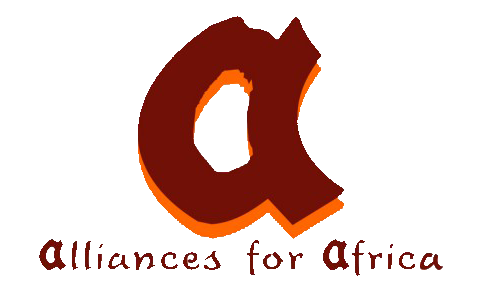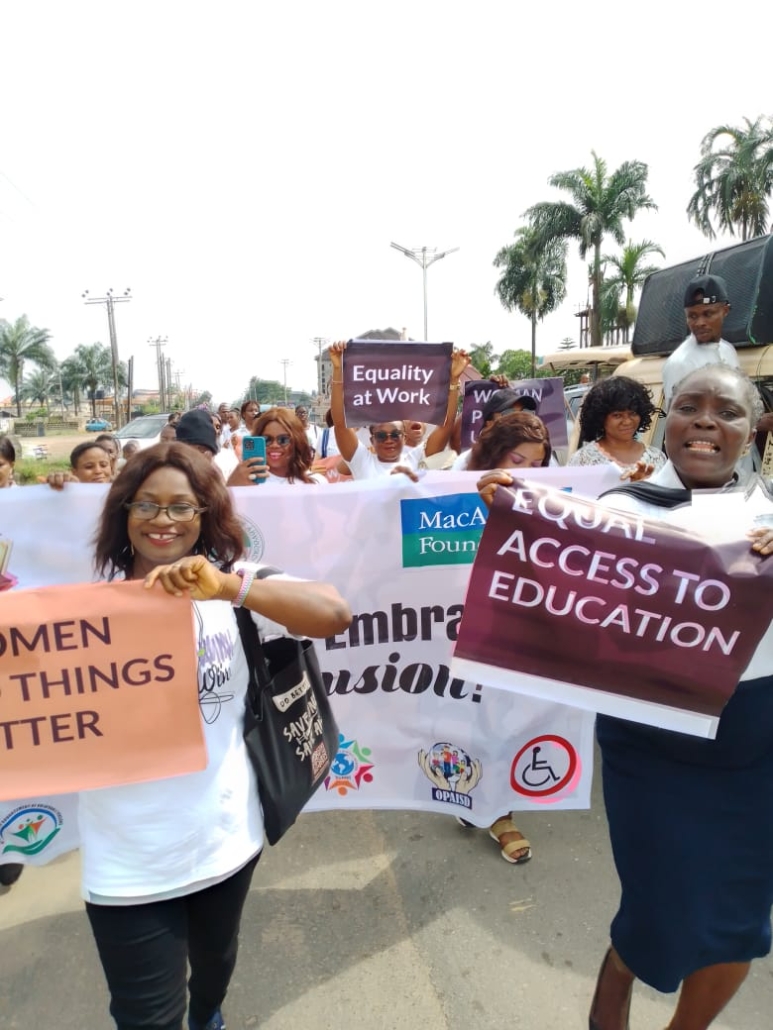Good Governance embraces Social Inclusion: A Unified Path to Progress in governance in Imo State.
On this day, the 26th day of October, 2023, Alliances for Africa (AfA) in collaboration with Partners for Good Governance (PGOG) in Imo State amplifies the pressing need for a paradigm shift towards inclusive governance in Imo State. This shift, crucial for progress, demands the empowerment of every citizen, particularly women, youths, persons living with disabilities (PWDs), and other marginalized groups who have long been excluded from vital socio-economic, and political opportunities in Imo State. The exclusion of this vital population profoundly hinders the state’s advancement.
Good governance is the bedrock of a thriving society. It embodies the principles of transparency, accountability, fairness, and inclusion. When governance is wielded effectively, it acts as a catalyst for social inclusion, ensuring that no individual is left behind. Social inclusion in essence, is about providing equal opportunities and access to resources for every citizen, irrespective of gender, age, abilities, or background. It is important to note that Persons living with disabilities constitute a significant portion of the population, with over 29 million Nigerians facing various forms of disability.
The Imperative of Deepening Inclusion:
Persons Living with Disabilities are the most excluded and stigmatised: The reports states that at least 29 million Nigerians suffer from one form of disability or the other. Persons living with Disabilities (PWDs) are the most discriminated against and are subject to different levels of exclusion, stigmatisation and even self-stigmatisation.
According to the report, only 1% of PWDs are employed in the formal sector, only 2% of PWDs have access to education and only 4% of PWDs have access to assistive devices. Additionally, 92% of PWDs need rehabilitation services and 98.5% of public buildings are not accessible to PWDs.
To reduce exclusion of PWDs, the report recommends:
- Passing new laws and effectively implementing existing ones, such as the Discrimination against Persons with Disability Prohibition Act 2018.
- Advocating for the adopting of the Disability Act by more states.
- Investing more in the education and health of PWDs.
- Making public transportation and buildings more accessible to PWDs.
- Expanding access to learning aids and providing interpreters for PWDs in places like hospitals.
- Adopting quotas for PWDs in elective and appointive offices.
- Expanding access to markets and credits for PWDs.
Deepening inclusion is not merely a moral obligation; it is imperative for the Imo State Government. By integrating the voices and contributions of women, youths, and PWDs into governance, we unlock their immense potential, enabling a more comprehensive and effective approach to societal development. Yet, they remain among the most excluded and stigmatized groups. To rectify this injustice, it is crucial to enact and enforce legislation that protects their rights and enhances their quality of life.
Ensuring Safe Spaces for Women and Girls: “There is no better time than this critical electioneering and transition period to discuss the need to make Nigeria a more inclusive society. Most of the issues causing friction in the country today are rooted in the exclusion of substantial part of the population. This is also a major subtext of the 2023 general election. It is therefore important to use the period before, during and after the elections to discuss and exact commitments on how to improve the participation, representation and agency of a significant number of Nigerians who have been alienated, locked out or left behind.
Nigeria’s gender policies of 2006 and 2020 which respectively assign 35% and 50% of appointments to women have been observed largely in the breach. Though females constitute 49.3% of the population, women amount to only 4.26% of the members of the national parliament. This is not only way below the African average of 23.4% but also compares dismally with the 32.8% for Uganda, 43% for Senegal and 47.95% for Rwanda. Nigeria takes the rear in a ranking of female legislators in national parliaments in Africa.
Within Nigeria, the parliaments in 15 states, or 41.66% of the 36 states, have no female legislators, according to data from Invictus Africa. The 15 states, which have a combined 410 state legislators, are: Abia, Bauchi, Borno, Edo, Jigawa, Kano, Katsina, Kebbi, Kogi, Kwara, Nasarawa, Sokoto, Taraba, Yobe and Zamfara. Beyond the political arena, the exclusion of women is equally pronounced in areas such as financial inclusion, ownership of landed property, access to education, health, ICT and wealth creation opportunities and others.
The unequal representation and participation of women and girls in governance and various sectors are deeply concerning. Despite making up almost half of the population, their engagement remains disproportionately low, especially in political spheres. Gender balance is not merely about inclusivity but a vital factor for economic growth and sustainable development.
To truly embrace social inclusion and good governance, the government must recognize the urgency of empowering the vulnerable and marginalized groups. The current imbalance, where a small number of individuals make decisions for millions, perpetuates a cycle of exclusion and unequal representation.
In light of these critical issues, we urgently call upon the Imo State government to:
- Promote and Implement Inclusive Policies.
- Strengthen Legislative Safeguards.
- Create Job Opportunities and lift Employment Waivers.
- Provide an Enabling Environment for Ease of Movement.
- Implement National Gender and Disability Policies.
- Enhance Security Measures for Women and Girls.
- Inclusion in Decision-making and Representation.
Alliances for Africa in collaboration with Partners for Good Governance (PGOG) in Imo State through this rally stands to foster a more inclusive society, where the voices and contributions of all citizens are valued and integrated into the fabric of governance.
About Alliances for Africa (AfA):
Alliances for Africa (AfA) is an International African woman-led non-governmental human rights, peace, and sustainable development organization. AfA works with partners in, around, and beyond the continent of Africa, advocating for the protection of human rights, promoting women’s participation in leadership and governance, building institutional capacity, advocating for gender justice, equality, and non-discrimination, as well as promoting peace, security, and conflict resolution interventions. Kpoturum( our web application for collating data for gender based violence in the south east) is a testament to our unwavering dedication to this cause.
For further inquiries, please contact:
Ms. Iheoma Obibi
Executive Director
Alliances for Africa
Owerri, Imo State

